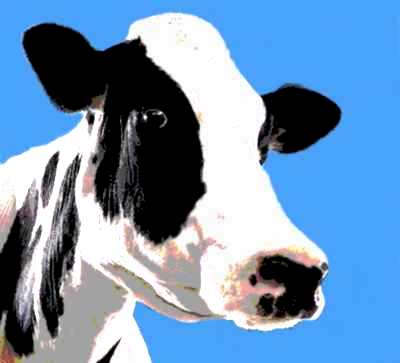I want, sometimes, to stop reading, writing, and thinking about robots, automation, and how technologies are changing the nature of work, workplaces, and people. I'd rather focus on the NBA.
But every time I think I will take a break from the robots something too interesting pops up, and I have to share. From the New York Times this week, check out the piece titled, With Farm Robotics, the Cows Decide When It's Milking Time, (a short excerpt of which is below):
Something strange is happening at farms in upstate New York. The cows are milking themselves.
Desperate for reliable labor and buoyed by soaring prices, dairy operations across the state are charging into a brave new world of udder care: robotic milkers, which feed and milk cow after cow without the help of a single farmhand.
Scores of the machines have popped up across New York’s dairy belt and in other states in recent years, changing age-old patterns of daily farm life and reinvigorating the allure of agriculture for a younger, tech-savvy — and manure-averse — generation.
“We’re used to computers and stuff, and it’s more in line with that,” said Mike Borden, 29, a seventh-generation dairyman, whose farm upgraded to robots, as others did, when disco-era milking parlors — the big, mechanized turntables that farmers use to milk many cows at once — started showing their age.
“And,” Mr. Borden added, “it’s a lot more fun than doing manual labor.”
Robotic milkers. Awesome. And in that one specific example of robot application we see borne out several of the most common drivers that are spearheading all kinds of automation efforts in all manner of settings and industries.
Apply technology to improve a repetitive and manual task? Check.
Make up for a labor shortage that makes the traditional approach to this work no longer possible? Check.
Appeal to the next generation of workers and leaders that are familiar with and expecting technology to play a role in their workplaces? Check.
Finally, and most importantly perhaps for readers in HR/Talent jobs - Technology and automation as a liberator - freeing up managers to focus on more important tasks and less on low-value, less appealing tasks? Check.
In fact, the money quote in the Times piece underscores this last point completely:
The Bordens say the machines allow them to do more of what they love: caring for animals.
“I’d rather be a cow manager,” Tom Borden said, “than a people manager.”
That quote from the dairy farmer is priceless and kind of telling as well. The cows might be hard to manage at times, but they are much easier than trying to manage people.
And with the robots, Mr. Borden can focus on what really matters to his business - the cows.